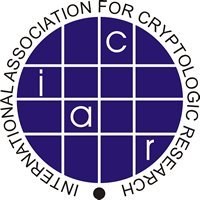Researchers introduce a comprehensive framework to systematize lookup arguments—critical tools enabling efficient non-native operations in zero-knowledge proofs. This taxonomy classifies techniques by cryptographic approach and composition style, offering practical guidelines for developers implementing zk-VMs, set membership proofs, and secure computation.
Unifying the Fractured World of Lookup Arguments: A Cryptographic SoK

Abstract excerpt: "Lookup arguments have become a central tool in proof systems, powering a range of practical applications. They enable the efficient enforcement of non-native operations, such as bit decomposition, range checks, comparisons, and floating-point arithmetic... We systematize the design of lookup arguments and the cryptographic primitives they rely on."
Lookup arguments form the backbone of modern cryptographic proof systems, quietly enabling everything from private blockchain transactions to secure cloud computations. Yet despite their critical role, the field has resembled a patchwork of incompatible approaches with varying security assumptions and performance trade-offs—until now. A new Systematization of Knowledge (SoK) paper by researchers from NYU and IMDEA Software introduces a unified framework to classify and analyze these cryptographic workhorses.
Why Lookups Matter
At their core, lookup arguments verify that values in a proof's witness belong to predefined tables—a seemingly simple task with profound implications:
- Bridging computational gaps: Enable non-arithmetic operations (bit manipulations, floating-point math) in arithmetic circuits
- zk-VM foundations: Model CPU instruction sets for zero-knowledge virtual machines
- Stateful cryptography: Power set membership proofs in complex state transitions
- Witness validation: Constrain witness values to small domains for security
"The efficiency of lookup protocols directly impacts the viability of entire classes of applications," the authors note, highlighting their role in SNARKs and STARKs.
A Modular Taxonomy
The paper's framework organizes lookup variants into five categories:
| Lookup Type | Use Case |
|---|---|
| Standard | Basic element-in-table checks |
| Projective | Multi-column table validations |
| Indexed | Dynamic table referencing |
| Vector | Batch element verification |
| Decomposable | Hierarchical lookup compositions |
Each type is further classified by four underlying proof techniques:
- Multiset equality (e.g., Plookup)
- Logup derivatives
- Cryptographic accumulators
- Subvector extraction (matrix-vector operations)
The Efficiency Trade-off Matrix
The researchers evaluate protocols across critical dimensions:
+---------------------+-------------------+-----------------------+
| Dimension | High-Performance | Trade-offs |
+---------------------+-------------------+-----------------------+
| Prover Cost | O(n log n) | Often table-size |
| | | dependent |
+---------------------+-------------------+-----------------------+
| Recursion Support | Constant overhead | May require trusted |
| | | setups |
+---------------------+-------------------+-----------------------+
| Preprocessing | 80%+ cost reduction | Increases initial |
| Benefits | for fixed tables | setup complexity |
+---------------------+-------------------+-----------------------+
Practical Guidance for Developers
Key recommendations emerge:
- zk-VM builders should prioritize decomposable lookups for instruction sets
- Recursive proof systems need protocols with minimal table-size dependence
- Fixed-table applications (e.g., KZG commitments) benefit maximally from preprocessing
- Memory-constrained environments may favor Logup variants with smaller footprints
The analysis reveals surprising limitations: some popular accumulator-based approaches become prohibitively expensive at scale, while newer matrix-vector techniques show promise for GPU acceleration.
The Next Frontier
Emerging research directions include:
- Adaptive preprocessing: Dynamically optimizing tables for evolving workflows
- Cross-protocol composability: Enabling lookups to interact with proof systems like Bulletproofs
- Post-quantum variants: Lattice-based constructions resistant to Shor's algorithm
This taxonomy arrives at a pivotal moment—as zero-knowledge proofs transition from theory to production, standardized lookup arguments will become the silent gears powering the next generation of private computation.
Source: SoK: Lookup Table Arguments (Hafezi et al., Cryptology ePrint Archive: 2025/1876)

Comments
Please log in or register to join the discussion